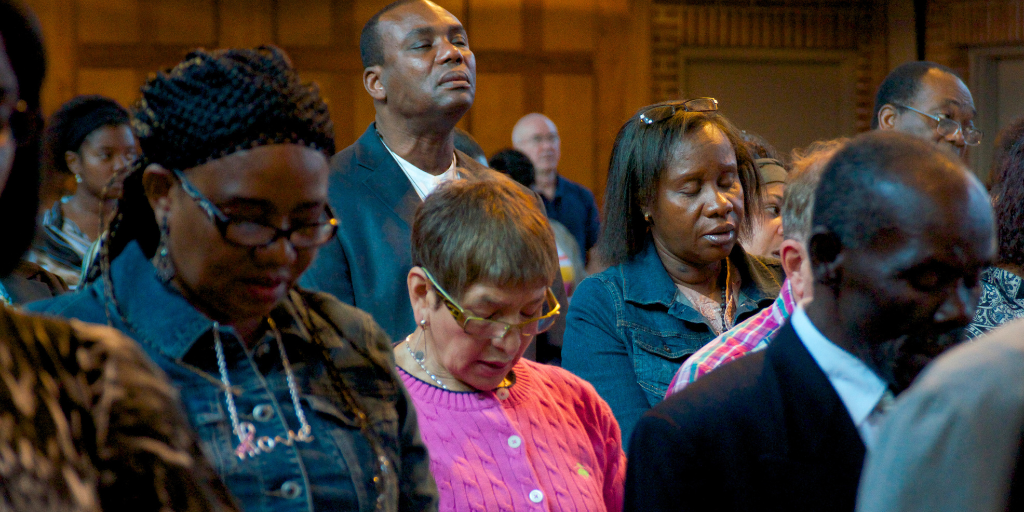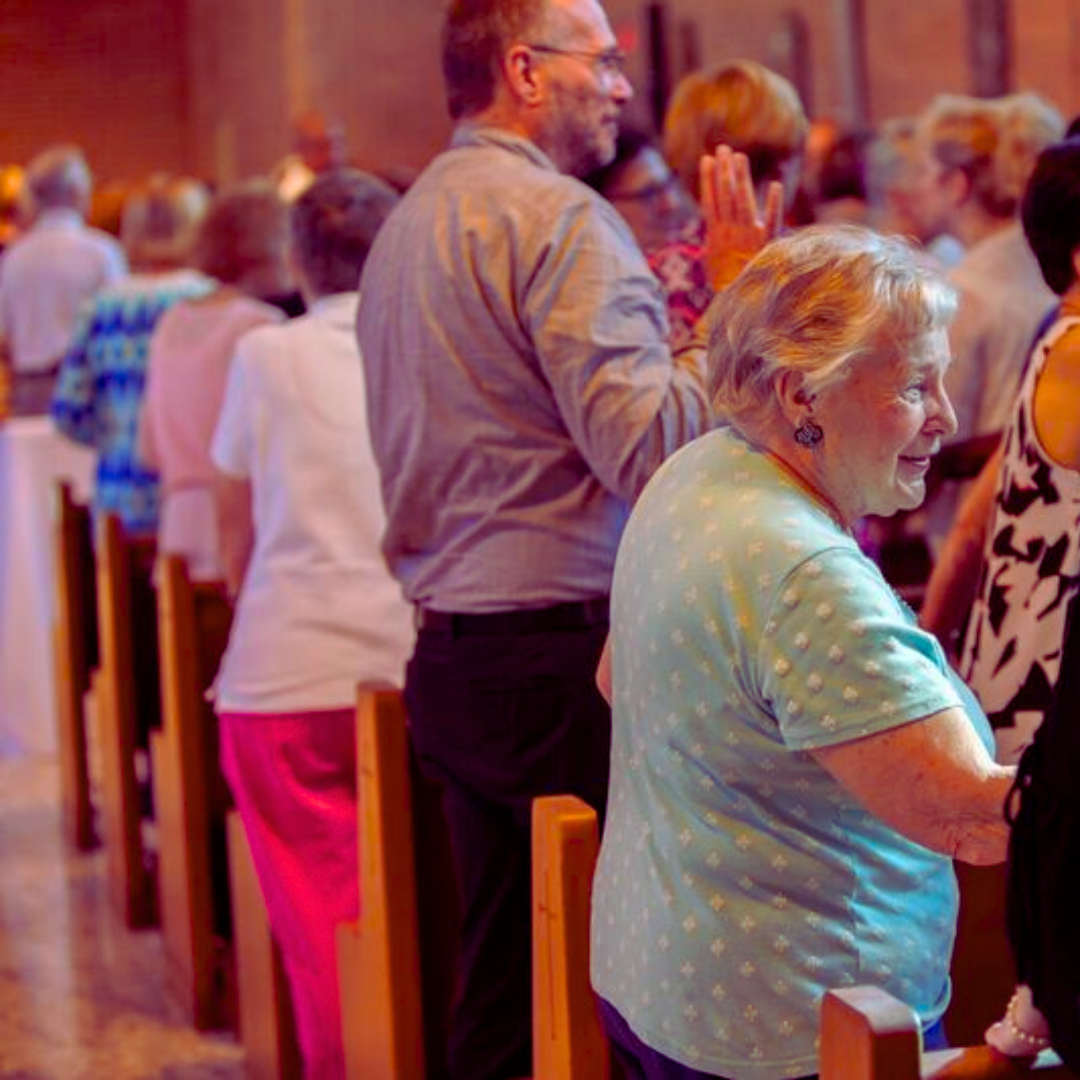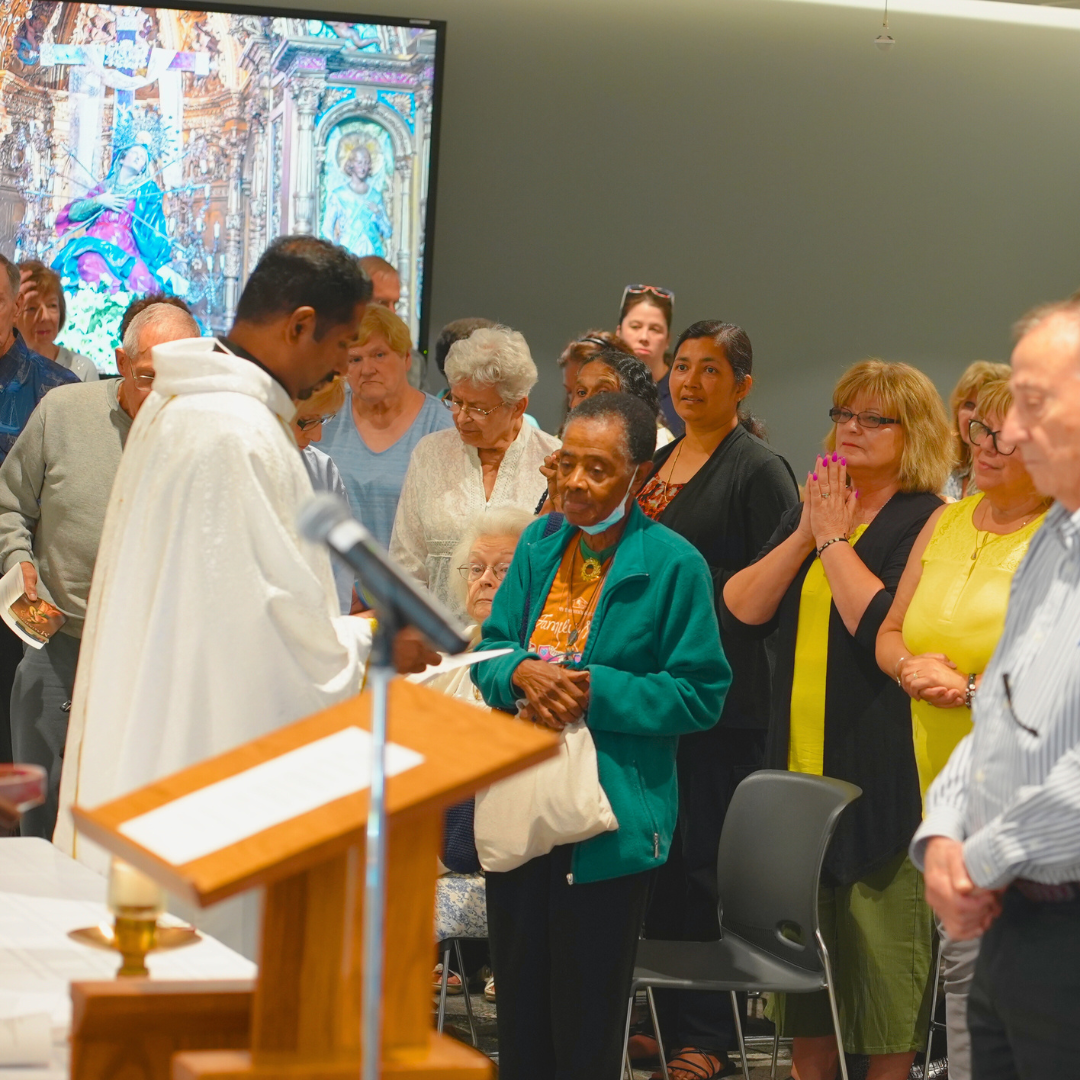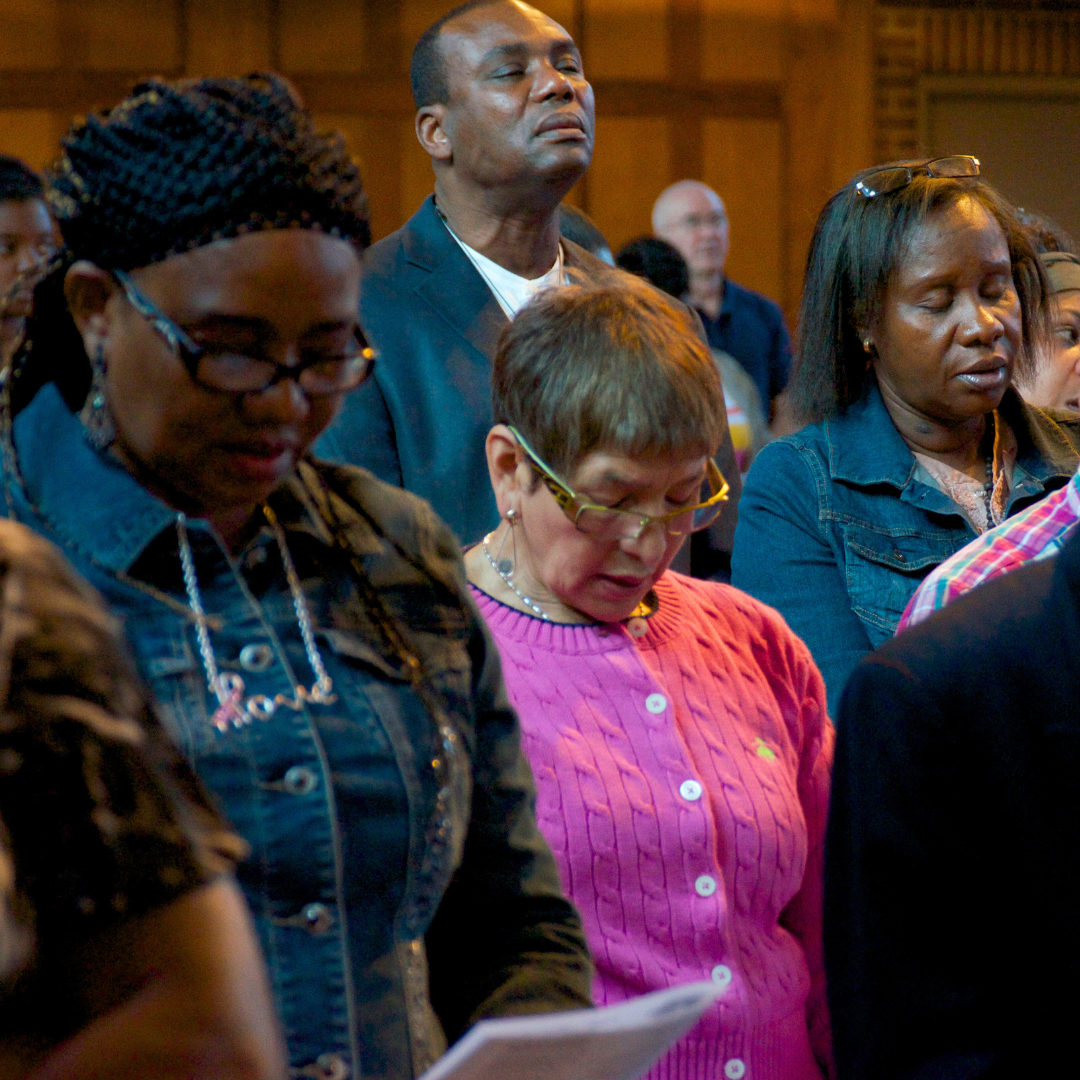
AnneMarie Miller unpacks ways that we can seek greater healing in God.
I’ve previously discussed how we, the congregation, are the “family that prays together” at Mass.
Sometimes, though, it is hard to pray together. Just like any family, our parish family is comprised of complex human beings who all grapple with sins, wounds, and brokenness in some way. At times, we sin. Whether we verbally lash out, hold tightly onto judgments against others, or stew over things that someone did, these sins are a barrier to the love that God calls us to. They create division, when we should be offering liturgical prayer as a unified Body of Christ.
There have been times when I have spent part (or all) of Mass ruminating over things that other people have done to me (sometimes without realizing it). In these moments, I notice my lack of unity with others. While I could not control how others acted toward me, I could control how I responded—and too many times, my response was one of obsessive judgement and anger instead of forgiveness. When speaking about the need to forgive, Romano Guardini makes a powerful observation in his book, Meditations Before Mass:
As long as you bear your grudge, no matter how “valid,” there can be no true congregation as far as you are concerned.

If we want to pray as a unified congregation during the liturgy, we need to strive for forgiveness and healing. In fact, Christ specifically discusses this topic during his Sermon on the Mount:
“Therefore, if you bring your gift to the altar, and there recall that your brother has anything against you, leave your gift there at the altar, go first and be reconciled with your brother, and then come and offer your gift.” (Matthew 5:23-24)
We may not always agree on how certain parish ministries should operate or which hymns to sing, but we can still strive for a deep unity within our diverse communities. Even if we are all different individuals with various opinions, we can grow in mutual love as brothers and sisters in Christ. I am still learning how to do this, and I continually fail. Yet, as I struggle towards greater healing and unity as a member of the congregation, there are a few different steps that I’ve been taking:
I prayerfully ponder the Confiteor
At the beginning of the Mass, we pray the Confiteor together:
I confess, to Almighty God, and to you my brothers and sisters, that I have greatly sinned, in my thoughts and in my words, in what I have done and in what I have failed to do, through my fault, through my fault, through my most grievous fault. ...
We declare, to the whole congregation, that we have sinned and need God’s mercy. Not only that, but we conclude the prayer by asking others to pray for us. These words are powerful! If we want to pray as a unified congregation, we must pursue healing and reconciliation. It can be painfully difficult to acknowledge my failings and apologize to others, but this process is freeing. When we pray the Confiteor from the depths of our hearts, we open ourselves up to the mercy and love of God as a congregation.
I pray for others at Mass
Although I’ve come to Mass with prayer intentions many times, it is only within the past several months that I’ve focused on praying for the other people who have gathered at Mass with me. The Confiteor points to this practice, but too often, I’ve focused on my own particular desires, intentions, or needs at the liturgy. While it is good to bring our own intentions to God, I’m discovering what a gift praying for others at Mass is.
Sometimes, in those spare moments before Mass begins, I’ll simply look around and start offering prayers for anyone who is sitting in the pews nearby, for the priest, and for the altar servers. I’ll ask God to heal us in whatever ways we need, and to help us find unity even when we see issues from different angles.

I embrace the Sacrament of Reconciliation
One time, I went with my husband and kids to Sunday Mass at a parish in another state. It was a prayerful liturgy, but for some reason, I was having a hard time giving God my complete focus. At some point, I glanced over to the wall of the church. At this parish, when one priest was celebrating Mass, another priest would be in the Confessional (he would leave sometime during the homily). All along this wall by the confessional, people were standing in line. They are truly participating in Mass, I thought to myself. These people were examining themselves and coming to God for grace, mercy, forgiveness, and healing.
I wanted to go to Confession. At some point during the homily, I scurred over to the confessional, and when I emerged a few moments later, I was different. I was renewed, I was restored, and I joyfully threw myself into praying the Mass with my husband and children. The Sacrament of Reconciliation helped me engage in the liturgy in a deeper way, for it restored my relationship with God and with the Church.
How else can we strive for healing and unity as a congregation at Mass?

Copyright 2023 AnneMarie Miller
Images: copyright 2018, 2023 Holy Cross Family Ministries, all rights reserved.
About the Author

AnneMarie Miller
A bibliophile, wife, mother of young children, and lover of the Liturgy, AnneMarie Miller enjoys exploring the manifold—and quirky—ways in which God speaks. She can often be found reading books to her kids, burrowing her toes in the red Oklahoma dirt, or sipping black coffee. Her reflections on Catholicism, literature, and hope can be found on her blog, Sacrifice of Love.


.png?width=1806&height=731&name=CatholicMom_hcfm_logo1_pos_871c_2728c%20(002).png)
Comments